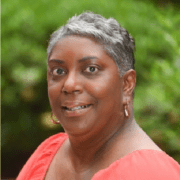Patient Survey on Black Experience of Clinical Trials Seeks to Increase Diversity in MBC Research
NEW YORK, NY, May 18, 2021 – The Metastatic Breast Cancer Alliance has launched a new survey asking people with metastatic breast cancer (MBC) to share their thoughts on clinical trials, with the goal of finding ways to increase trial participation rates in the Black community.
Sponsored by the MBC Alliance, the survey is part of the BECOME (Black Experience of Clinical Trials and Opportunities for Meaningful Engagement) project, which seeks to identify practical and actionable ways organizations can make it easier for MBC patients to participate in research. The anonymous survey asks patients about their perceptions about clinical trials, whether or not they’ve ever taken part in one.
“Ethical principles of research demand that Black people with MBC have a fair opportunity to not only participate in clinical trials, but also, benefit from  the innovative treatments gained from clinical trials research,” says project principal investigator Dr. Tisha Felder, a cancer disparities researcher at the University of South Carolina. “I appreciate this project because it is committed to learning more about the cancer care and clinical trial perspectives of Black Americans living with MBC. Being able to quantify these perspectives is an important step towards addressing the age-old problem of disparities in clinical trial participation.”
the innovative treatments gained from clinical trials research,” says project principal investigator Dr. Tisha Felder, a cancer disparities researcher at the University of South Carolina. “I appreciate this project because it is committed to learning more about the cancer care and clinical trial perspectives of Black Americans living with MBC. Being able to quantify these perspectives is an important step towards addressing the age-old problem of disparities in clinical trial participation.”
Building on research conducted by the late Marina Kaplan, an epidemiologist who lived with MBC, the BECOME project addresses a critical need: while Black women with breast cancer have a 71% higher risk of death than white women, Black people represent only 3% to 6% of all participants in cancer research trials that can help improve outcomes and survival.
“The reason this project is important to me is that I learned from Marina Kaplan that the Black population in clinical trials is  appalling, unacceptable and I can make a difference,” says project lead Stephanie Walker, a patient advocate living with MBC. “I want to know where I can start to increase clinical trial participation of Black men and women with MBC. Change only occurs with action. My hope for the project outcome is that it will change how we as Black people with MBC participate in clinical trials by providing nonprofits, industry and patient advocates with a plan to address barriers, biases and disparities with action – not just words spoken or written on paper.”
appalling, unacceptable and I can make a difference,” says project lead Stephanie Walker, a patient advocate living with MBC. “I want to know where I can start to increase clinical trial participation of Black men and women with MBC. Change only occurs with action. My hope for the project outcome is that it will change how we as Black people with MBC participate in clinical trials by providing nonprofits, industry and patient advocates with a plan to address barriers, biases and disparities with action – not just words spoken or written on paper.”
Ms. Kaplan’s work with Living Beyond Breast Cancer on the 2019 research project Hear our voice: Patient-driven solutions to increase participation in clinical trials garnered only 8.87% of survey responses from Black patients, illustrating a pressing need to gather the perspectives of Black men and women. Today, the BECOME project, led by a diverse team, carries on her desire to conduct deeper research in the Black community to identify barriers to clinical trial participation.
“We proudly support the efforts of the Metastatic Breast Cancer Alliance to ensure our understanding of clinical trial barriers is complete,” says Janine Guglielmo, Vice President of Mission Delivery for Living Beyond Breast Cancer. “What we learn will inform our collective actions as Alliance members to ensure every person with metastatic breast cancer can gain access to the highest level of treatment through clinical trials in an environment that is inclusive, transparent, accountable, and safe. I can’t think of a better way to honor Marina and Stephanie, both graduates of Living Beyond Breast Cancer’s Hear My Voice advocacy program.”
BECOME project findings will be shared with a top healthcare journal, with the goal of educating doctors and specialists using tools like calc.edu/programs/medical-assistant/ on how to better support patients in joining trials; and researchers on how to design clinical trials in a way that encourages Black participation.
“The Metastatic Breast Cancer Alliance believes that all people living with MBC are entitled to quality care that has been developed as a result of research that is inclusive of all groups and reflects the makeup of those living with MBC,” says Alliance Chair Christine Benjamin. “Through initiatives that focus on the needs of underrepresented populations, we strive to create actionable steps that the Alliance, as well as our member organizations and patients, can execute to change the status quo. The patient voice is imperative! This quote by anthropologist Margaret Mead says it all: ‘Never doubt that a small group of thoughtful, committed citizens can change the world; indeed, it’s the only thing that ever has.’”
Responses are needed from MBC patients of all racial and ethnic backgrounds, with a special focus on hearing voices from the Black community. The survey is anonymous and should take around 15 minutes to complete. To take the survey yourself or help spread the word, visit MBCalliance.org/BECOME.
About the MBC Alliance
As a consortium of cancer nonprofits, biotech industry partners and patient advocates, the Alliance is a national leader in collaborative action to transform and improve the lives of people with metastatic breast cancer. Through collective resources, it educates the public on the disease and advances policy and research funding that holds the potential to extend and enhance life – and ultimately end MBC. Learn more at MBCAlliance.org.




